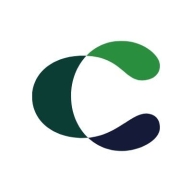

SonarQube Server and Contrast Security Assess compete in application security testing. While SonarQube shines in open-source code coverage and pricing, Contrast stands out in dynamic security analysis, offering feature richness that justifies its higher cost.
Features: SonarQube Server focuses on static code assessment, providing robust language support, code quality analysis, and CI/CD integration. Contrast Security Assess excels in dynamic application security testing, real-time detection, and runtime protection, ensuring comprehensive threat coverage.
Room for Improvement: SonarQube Server could enhance its dynamic analysis capabilities and reduce false positives. Better integration with third-party tools and improved user interface are also needed. Contrast Security Assess requires improvements in ease of use, expanded language support, and more competitive pricing to appeal to small to mid-sized teams.
Ease of Deployment and Customer Service: SonarQube Server offers cloud and on-premises deployment, supported by extensive documentation. Contrast Security Assess emphasizes cloud-native deployment with strong integration in DevSecOps pipelines. Contrast provides personalized customer service and proactive support, which is beneficial for complex deployment needs.
Pricing and ROI: SonarQube's accessible pricing and straightforward setup provide sustainable ROI for small to mid-sized teams. Contrast requires a higher initial investment but offers enhanced security capabilities, translating to improved ROI through a fortified security posture for large enterprises.
| Product | Market Share (%) |
|---|---|
| SonarQube Server (formerly SonarQube) | 20.5% |
| Contrast Security Assess | 0.8% |
| Other | 78.7% |


| Company Size | Count |
|---|---|
| Small Business | 2 |
| Midsize Enterprise | 3 |
| Large Enterprise | 6 |
| Company Size | Count |
|---|---|
| Small Business | 32 |
| Midsize Enterprise | 21 |
| Large Enterprise | 75 |
Contrast Security is the world’s leading provider of security technology that enables software applications to protect themselves against cyberattacks, heralding the new era of self-protecting software. Contrast's patented deep security instrumentation is the breakthrough technology that enables highly accurate assessment and always-on protection of an entire application portfolio, without disruptive scanning or expensive security experts. Only Contrast has sensors that work actively inside applications to uncover vulnerabilities, prevent data breaches, and secure the entire enterprise from development, to operations, to production.
SonarQube Server enhances code quality and security via static code analysis. It detects vulnerabilities, improves standards, and reduces technical debt, integrating into CI/CD pipelines.
SonarQube Server is a comprehensive tool for enhancing code quality and security. It offers static code analysis to identify vulnerabilities, improve coding standards, and reduce technical debt. By integrating into CI/CD pipelines, it provides automated checks for adherence to best practices. Organizations use it for code inspection, security testing, and compliance, ensuring development environments with better maintainability and fewer issues.
What are the key features of SonarQube Server?Many industries implement SonarQube Server to uphold coding standards, maintain security protocols, and streamline their software development lifecycle. In sectors like finance and healthcare, adhering to regulations and ensuring reliable software is critical, making SonarQube Server invaluable. It is often integrated into CI/CD pipelines, ensuring that code changes meet set standards before deployment. This approach enhances productivity and maintains compliance with industry-specific requirements.
We monitor all Application Security Tools reviews to prevent fraudulent reviews and keep review quality high. We do not post reviews by company employees or direct competitors. We validate each review for authenticity via cross-reference with LinkedIn, and personal follow-up with the reviewer when necessary.